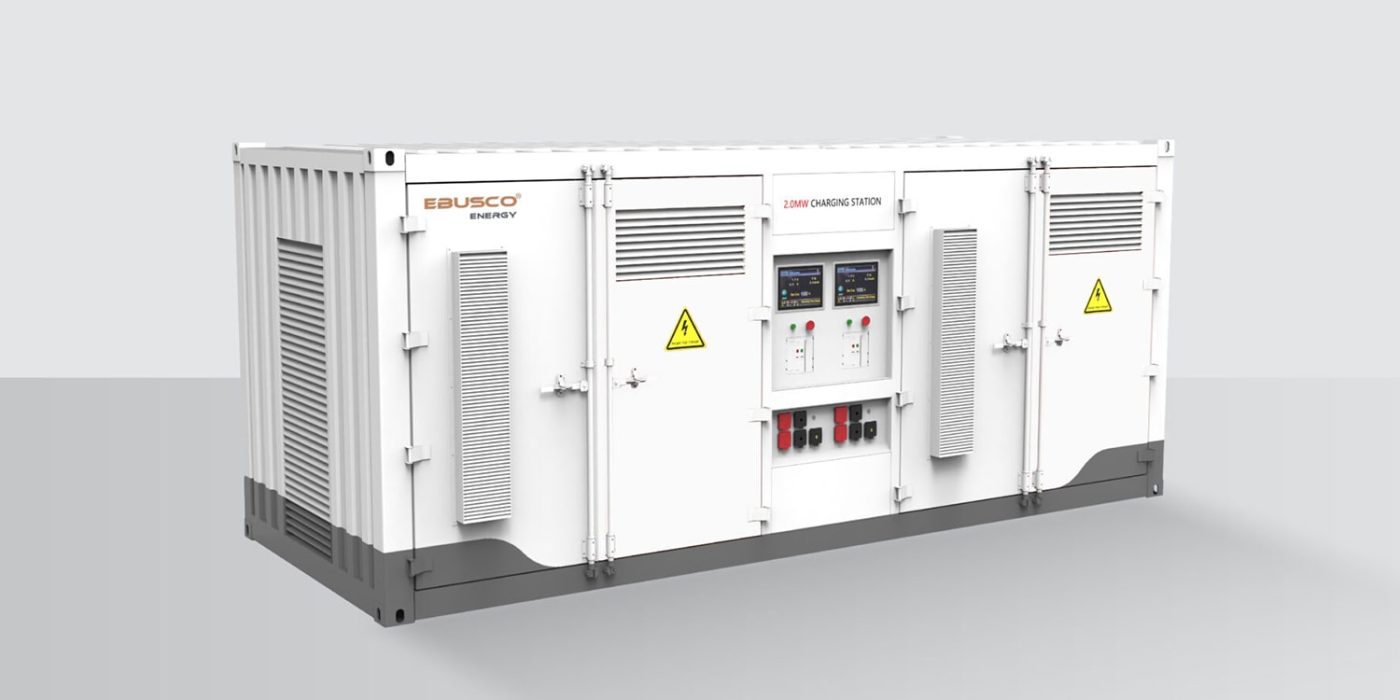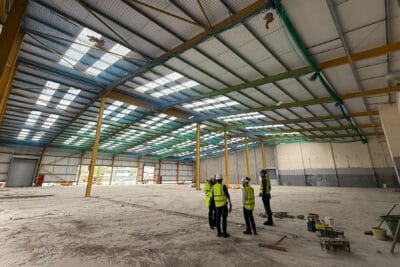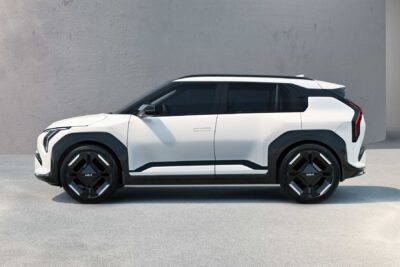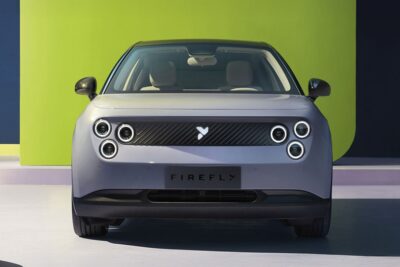Ebusco to supply on shore power system to electrify inland vessels
Ebusco has received an order from Zero Emission Services (ZES) to supply charging technology to power zero-emission inland vessels. The Dutch company, of which Ebusco holds 40 per cent, sells swappable energy containers for ships.
These so-called ZESpacks are used to power inland vessels and, when empty, can be swapped at an exchange and charging station. The idea borrows from swappable battery systems, known form the car industry via Nio, for example, and ZES founded itself on the idea in 2020. Ebusco became involved in 2022, when the Dutch manufacturer took over 40 per cent of the ZES from founding partner Engie. The bus specialist announced then that it wanted to increase its influence in the maritime sector. From Ebusco’s point of view, the participation in ZES from the start marked the beginning of cooperation “in which ZES can benefit from Ebusco’s experience with batteries and battery management systems”.
Following a regular tender, this cooperation is now indeed bearing fruit. ZES announces that it has placed an order with Ebusco to deliver ten Docking Solutions and an option for five more. The Docking Solutions will charge ZESpacks to supply the vessels with power while underway.
In addition to this en-route charging solution, ZES was also looking for a way to supply ships with shore power during loading and unloading. The choice fell on an Ebusco Discharge Station and a Charging Station. The shore power system consists of a container equipped to supply ships with electricity during loading and unloading stops.
Ebusco remarks that this is a plug-and-play solution since the Discharge Station is not connected to the public electricity grid but is used in combination with energy containers, allowing the station to be moved easily. The six ZESpacks can, in turn, utilise the Charging System, which can charge several energy containers simultaneously via a 20-foot container. The installation can also balance the power grid when not used for inland navigation.
Bart Hoevenaars, CEO of Zero Emission Services, said Ebusco was a “reliable partner with a deep understanding of batteries”. The purchase of several Docking Solutions, a Discharge Station and a Charging Station also take the company “one step closer to zero emission”.
When ING Bank, the energy provider Engie, and maritime technology company Wärtsilä founded ZES alongside the Port of Rotterdam Authority in 2020, they expected to launch the first zero-emission inland vessels a year later. Indeed, in 2021, the ‘Alphenaar’, an electric ship running with this concept, went into service for the Heineken brewery.
When Ebusco came on board in 2022, it compared the inland waterway industry with the bus industry, believing the transition could be faster since the overall landscape and acceptance of electric transport were much more advanced than ten years ago. “We are convinced that Ebusco’s participation in ZES can bring accelerated growth in the adoption of electric inland shipping,” said Peter Bijvelds, CEO of Ebusco.
Commenting on today’s order, Bijvelds said, “After an extensive tender process, we are delighted to be working for ZES again. We already have significant experience with heavy-duty batteries in the bus industry and are proud to now apply this knowledge to the electrification of inland shipping.”
The partners did not mention concrete orders or vessels to be powered by ZESpacks other than the ships for Heineken.
ZES previously predicted that by 2030, some 150 inland waterway vessels could be using ZES packs. The plan is to set up a network of “open access charging points” to replace the battery containers.





0 Comments